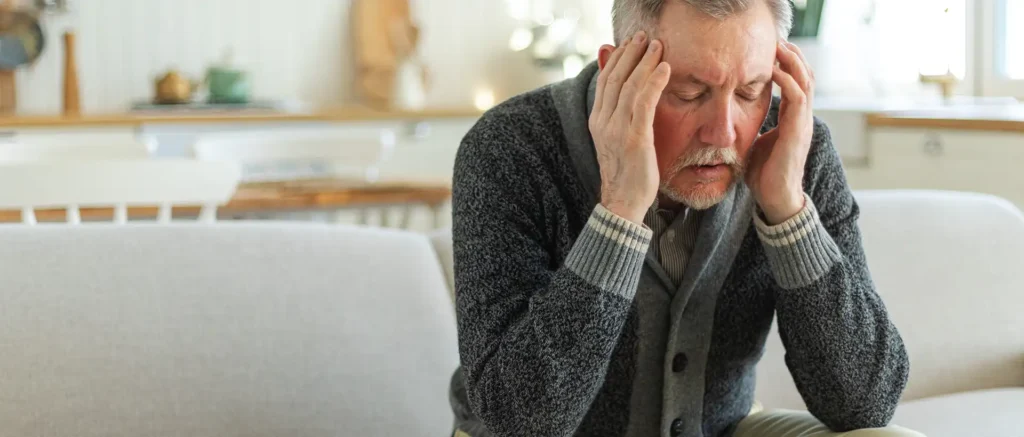Prescription Drug Detox Programmes: Prescription Drug Addiction Rehab
Prescription drug detox programmes offer a vital first step for people struggling with dependence on prescribed medication. These structured treatment programmes provide medical support to help you safely withdraw from prescription drugs and begin recovery.
Understanding Prescription Drug Detox Programmes
Prescription drug detox programmes are designed to help people safely stop using prescription medications that have the potential for misuse or addiction. These programmes offer clinical supervision and emotional support to address both physical and psychological dependence.
What Is Prescription Drug Detox?
Prescription drug detox is the medically supervised process of clearing prescription drugs from your body. Detox is essential when dependency has developed, and it helps manage withdrawal symptoms while reducing health risks.
You may experience symptoms of prescription drug withdrawal, such as nausea, anxiety, insomnia, or sweating, as your body adjusts. The detox process typically begins with a thorough assessment to understand your medical history, current drug use, and mental health status.
To support safe detoxification, doctors may prescribe medications that alleviate severe withdrawal symptoms. Therapy and counselling are sometimes incorporated to begin addressing the underlying causes of drug dependency.
The primary goal is to transition from active drug use into a more stable state, allowing you to begin further addiction treatment tailored to your individual treatment needs.
Commonly Abused Prescription Medications
Several types of prescription drugs are commonly misused:
- Opioids (e.g., codeine, tramadol, morphine) are prescribed for pain relief
- Benzodiazepines and sedatives (e.g., diazepam) for anxiety and sleep disorders
- Stimulants (e.g., certain ADHD medications) are used to increase alertness
Misuse may involve taking higher doses, using someone else’s medication, or altering the method of intake. Prescription drug abuse can develop quickly, especially when people underestimate the risks of using prescription drugs beyond their intended purpose.
Physical and Psychological Dependence
Prescription drug dependence has both physical and psychological dimensions. Physical dependence occurs when your body becomes reliant on a drug to function. Stopping the drug leads to withdrawal symptoms, including muscle aches, tremors, and irritability.
Psychological dependence involves emotional cravings and the belief that you need the drug to cope. This type of dependency makes quitting especially difficult, particularly if you use medication to manage stress, trauma, or day-to-day life.
Both forms of dependence reinforce each other, which is why medically supported detox and therapy are crucial.

Detoxification Process and Medical Supervision in Rehab
Prescription drug detox follows a structured and medically managed process. Each stage is closely supervised to ensure safety and manage any potential complications.
Stages of Detoxification
Detox begins with a clinical assessment to evaluate your substance use, physical health, and mental well-being. Based on this, a personalised treatment plan is developed.
During detoxification, your body starts to eliminate substances such as opioids, benzodiazepines, or stimulants. The severity of your addiction, duration of your addiction, and the type of drug used will affect how long detox takes and how intense the symptoms are.
Following the initial detox, continued support is provided through ongoing monitoring, medication management, and preparation for rehabilitation.
Medically Assisted Detox and Supervised Care
In a medically assisted detox, healthcare professionals monitor your condition 24/7. Doctors, nurses, and mental health specialists track your vital signs and respond quickly to any complications.
Medications such as methadone, buprenorphine, or anti-anxiety treatments may be prescribed to ease symptoms and lower the risk of relapse. Naloxone may be used in emergencies to reverse an overdose.
This high level of care is particularly important during benzodiazepine rehab or opioid detoxification, where unsupervised withdrawal can be dangerous.
Managing Withdrawal Symptoms
Withdrawal symptoms can range from mild discomfort to severe physical and psychological distress. These may include insomnia, vomiting, high blood pressure, seizures, and hallucinations.
Medical staff manage these symptoms using tapering strategies and supportive medications. Slowly reducing doses, rather than stopping abruptly, is safer and more comfortable.
Additional medications can help with cravings, mood swings, or nausea. Monitoring and adjusting treatment throughout the detox process ensures your safety.
Inpatient Versus Outpatient Detox Options
Inpatient treatment is recommended for patients with severe prescription drug addiction or those at high risk of complications. These programmes offer around-the-clock care in a hospital or residential treatment setting.
Outpatient treatment is more flexible, allowing you to remain at home while attending scheduled appointments. It is suitable if your dependency is mild to moderate and you have a strong support system.
Choosing between inpatient rehab and outpatient care depends on your medical needs, mental health status, and home environment.

Prescription Drug Detox Programme Elements
Prescription drug detox programmes combine personalised care with expert support. They are designed to help you withdraw safely, manage withdrawal symptoms, and prepare for long-term recovery from addiction.
Individualised Treatment Plans
A tailored treatment plan begins with a thorough prescription drug assessment. Specialists consider your history, co-occurring conditions, and goals.
Treatment plans may include inpatient rehab, medically assisted detox, and step-by-step rehabilitation goals. The plan is regularly reviewed and adjusted to reflect your progress.
Therapeutic Interventions and Counselling
Therapy is a core part of prescription drug addiction treatment. Cognitive behavioural therapy (CBT) helps address thought patterns and behaviours associated with drug use.
Additional options include mindfulness, holistic approaches, and addiction counselling. One-on-one therapy, group sessions, and family involvement all play a role in your recovery journey.
Support Groups and Aftercare
Ongoing support is essential for sustained recovery. Programmes may include group therapy through organisations like SMART Recovery or Narcotics Anonymous.
Aftercare services often involve counselling, relapse prevention planning, and online support. Prescription drug rehab can help you stay on track and avoid returning to drugs or alcohol.
Risks, Complications, and Long-Term Recovery for Addiction
Detox is necessary, yet it does carry risks. Complications can occur, especially when withdrawing from substances like benzodiazepines or opioids.
Potential Complications of Detox
Unsupervised detox can lead to serious health problems, including seizures, dehydration, heart issues, or extreme psychological distress.
Attempting to detox from prescription drugs at home can be unsafe. Social detox (without medical aid) is not recommended for those at risk of severe withdrawal.
Medically assisted detox in a rehab facility or prescription drug rehab centre helps minimise these risks and increases the likelihood of safe withdrawal.
Addressing Mental Health Issues
Mental health plays a central role in recovery. Co-occurring conditions like anxiety or depression often surface during detox and can interfere with progress.
Post-acute withdrawal syndrome (PAWS) may linger for months, causing emotional instability, fatigue, and disrupted sleep.
Integrated treatment that addresses both addiction and mental health, often called dual diagnosis care, provides a more comprehensive path to healing. Therapy and medication may both play a role in supporting recovery from addiction.

Maintaining Long-Term Recovery
Recovery from prescription drug addiction is an ongoing process. After detox, long-term strategies are essential to maintain sobriety and support addiction rehabilitation.
These may include:
- Continued therapy and support groups
- Healthy coping mechanisms for stress
- Structured routines via outpatient care or sober housing
- Lifestyle changes to support physical and emotional well-being
Addiction can occur over time, and sustaining recovery often requires long-term commitment and community support. Prescription drug detox may offer access to aftercare and recovery resources that can help maintain momentum.
PROMIS Offers More Than Just Medical Supervision
Many people seeking help for prescription drug addiction are also carrying unresolved emotional pain. PROMIS recognises this connection and incorporates holistic therapies into its treatment framework, offering people a path to heal both body and mind.
Our prescription drug detox programmes are medically led, personalised, and grounded in empathy, ideal for those looking to rebuild their lives with dignity and support. When choosing a facility like PROMIS, you’re selecting a place that understands the complete story behind your condition.
Frequently Asked Questions
What are the most effective approaches to prescription drug withdrawal?
The most effective methods include medical detox under clinical supervision, supported by therapy and aftercare.
How long does it typically take to detox from prescription medications?
The detox duration depends on the type of drug, dose, and duration of use. It can range from several days to a few weeks.
Can you describe the withdrawal symptoms one might experience during detox?
Common symptoms include anxiety, insomnia, nausea, mood swings, and cravings. In some cases, more severe issues like seizures may occur.
What supportive measures are available during a detox programme?
Supportive measures include monitoring by medical staff, medications to ease symptoms, counselling, and mental health support.
What should one consider when choosing a facility for drug detoxification?
Look for a treatment centre or rehab clinic that offers licensed medical care, experience with your specific drug misuse, and personalised treatments.
Are there any prescription medications that aid in the detox process?
Yes, medications like methadone, buprenorphine, or other supportive drugs may be used depending on your needs and the type of prescription drug being detoxed from.
